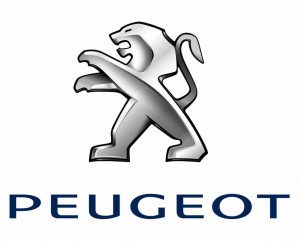
Peugeot and Dongfeng inked a $1.1 billion deal giving the French automaker a much-needed infusion of cash.
Struggling French automaker Peugeot is receiving a helping hand from halfway around the world with Chinese investor Dongfeng investing 800 million Euros, or $1.1 billion, in the European firm.
It’s a critical step for PSA Peugeot Citroen, which has been facing increasing problems – and mounting losses – in the face of Europe’s worst economic crisis in decades. There have been concerns Peugeot might not be able to survive without outside help, a situation that has led the heirs to the Peugeot family to sharply reduce their stake in the maker in return for Dongfeng’s help.
In turn, Dongfeng gets to bolster its position in its home market – now the largest automotive market in the world – gain access to much-needed technology, and potentially put it in a position where it could expand beyond China’s borders. A number of Chinese makers have been hoping to expand into Europe and North America but so far have faced numerous obstacles along the way.
The French government will meanwhile buy an equal number of shares as Dongfeng. That means the troubled Peugeot will now get another 1.6 billion Euros, or $2.2 billion, to help it through its current difficulties. It was, however, originally hoping to generate as much as 3 billion Euros.
In turn, the new alliance effectively ends the century-old dominance of the founding Peugeot family. Dongfeng, the French government and the family will each hold equal stakes in the company.
The move should help prop up Peugeot though it is far from certain that the French maker is through the worst of its troubles, which has seen it run up billions of dollars in losses. At the same time the company announced the new investments it reported that it had lost 2.3 billion Euros in 2013, down from a record 5 billion Euro loss in 2012. Revenues from car sales fell 4.8% last year, to 36.5 billion Euros.
The good news for the company is that there are growing signs that the European auto market has bottomed out, though it is unclear just how much better 2014 will be.
(Mini is scrambling for production capacity. For more, Click Here.)
Peugeot has been searching for help for several years and previously entered into an alliance with General Motors. But that partnership quickly lost momentum as it became increasingly questionable what benefit either company would achieve. In December, the U.S. maker sold off – at a loss – the 7% stake it had taken in Peugeot.
(Click Here to read about a potential tie-up between Apple and Tesla.)
Dongfeng has had a longer-running relationship with Peugeot. To manufacture cars in China, the Beijing government requires foreign makers to partner with a domestic Chinese producer. But those local companies often have multiple relationships of their own, and along with the Peugeot joint venture, Dongfeng also builds cars for both Nissan and Honda – and produces other vehicles under its own brand.
(To see how the winter weather has impacted auto production worldwide, Click Here.)
The Dongfeng name is largely unknown outside of China and it remains to be seen if the company might try to use the new partnership to help it reach beyond Chinese shores. Pressure to do so could intensify if the domestic Chinese market continues to slow down as it has in recent months. Sales were up about 7% in January, and while that was much better than in either Europe or North America, the Chinese market was growing at a pace well into the double-digits for more than a decade.
Dongfeng was founded in 1969 and has since become one of China’s largest domestic automotive manufacturers. Peugeot, meanwhile, dates back to 1810, and produced its first gasoline-powered automobile in 1890.

Before long China will own the world…